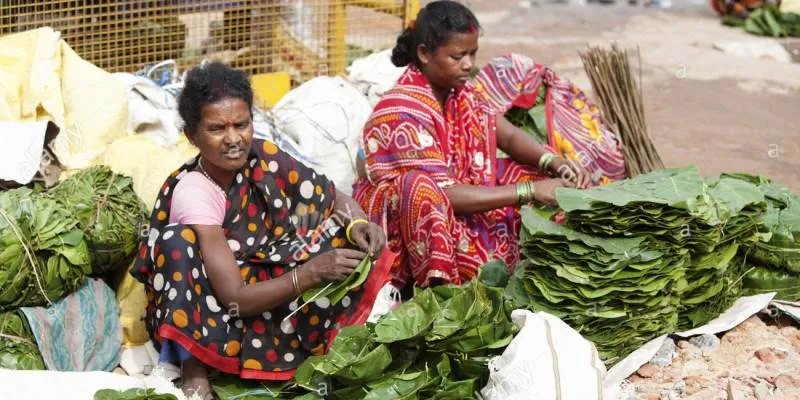Indian 'Pattals' trending in Europe as 3,500 tribal women turn into entrepreneurs
High-end hotels in Europe are keen to serve meals to their customers on biodegradable plates made of siali leaves that are now being sourced from tribal pockets of Odisha. About 3,500 women from 127 tribal hamlets in Kandhamal, Sambalpur, Angul and Deogarh have entered into a formal agreement with Leaf Democracy, a German company, to supply one lakh siali leaf plates every month.

“Following the Paris Agreement on climate change that aimed at long-term environmental stability, more developed nations are switching to biodegradable products. The hotel industry in these countries has also developed a craze for biodegradable plates, typically made from leaves because these decompose over time and do not have any negative impact on the environment,” a senior official from the German company said, reported The Telegraph.

In its agreement, the company has made it clear that it needs quality products – leaves used for making the plates should be green (only possible if they are dried in shade) with no black marks or holes. At present, the leaf plates are being transported to Vishakhapatnam port from where they are shipped to Germany. “These women, who earlier used to survive by selling minor forest products such as siali leaves, sal seed, mohua flowers and tamarind, delivered their first consignment as part of the agreement in November on a trial basis. It fetched them around Rs 75,000. Impressed with the quality, the German firm signed a formal agreement with the women’s group,” said Y. Giri Rao, who heads the Odisha centre of Vasundhara, a forest rights group.
Making leaf plates out of siali leaves is a source of supplementary income for poor tribal people living in the forests of the state. The women use the leaf of the siali creeper that is found abundantly throughout the year to stitch them together with bamboo shavings and give it a shape of round plates. Over 70 per cent of tribal women in these districts are engaged in making these plates that used to be purchased by middlemen for a paltry sum and supplied to grocery shops and small hotels in towns and cities.
These eco-friendly plates were once used largely during community feasts, but gradually got replaced by plates made of foam and plastic. Middlemen, most of them from the neighbouring Andhra Pradesh, used to bulk purchase the leaves for just Rs 10 a kilogram (about 150 leaves) and supply it to hundreds of temples in the state. They are now facing tough competition from the Leaf Democracy, which pays Re 1 for each leaf or Rs 150 a kilogram. “It’s huge amount for the poor tribal people, who were unaware of the importance of the leaves and the money it could fetch them. They had so long been exploited by traders, with whom they dared not bargain,” said Biswanath Tung, a villager who is spearheading the business in Kandhamal district.
To stay updated with more positive news, please connect with us on Facebook and Twitter.







